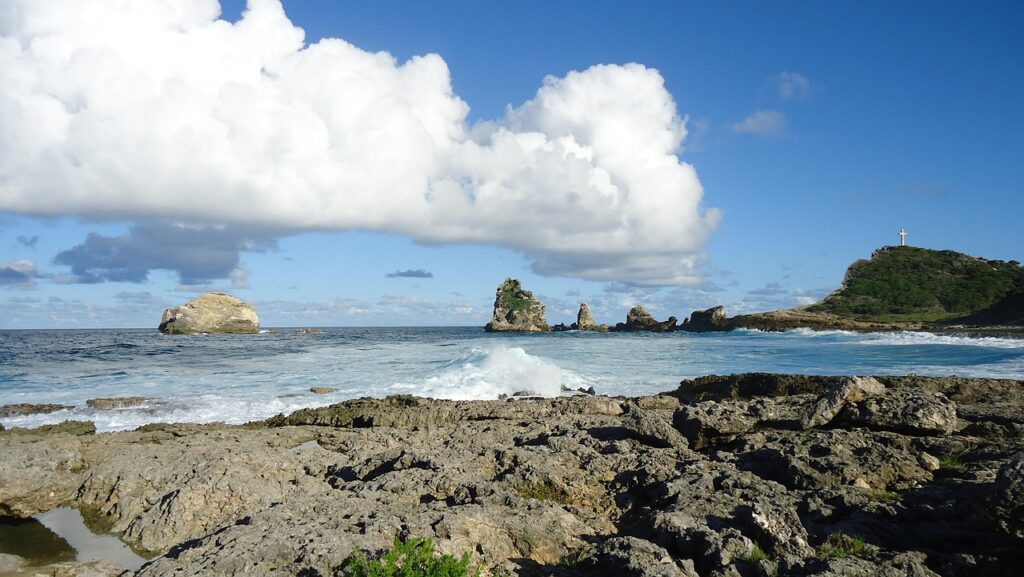
Understanding Travel Insurance Basics
When planning a trip, especially to a tropical paradise like Guadeloupe, travel insurance might not be the first thing on your mind. It’s like the umbrella you bring but hope you never need. Nevertheless, having the right coverage becomes incredibly important, especially during hurricane seasons. So, let’s dive into how you can ensure your travel insurance will protect you during named storms in Guadeloupe.
What Are Named Storms?
First off, you might be wondering: what exactly is a named storm? These storms get their names from the National Hurricane Center (NHC) when they reach specific wind speeds and conditions. In the Caribbean, especially the Caribbean Sea, these can range from tropical storms to hurricanes that can significantly impact travel plans.
For instance, let’s say you booked a dream vacation to Guadeloupe, and a hurricane named “Lorenzo” pops up right in your travel window. This is the sort of situation where your insurance policy’s specifics will come into play.
Why Travel Insurance Matters
Having travel insurance isn’t just a ‘nice-to-have.’ It’s essential for several reasons:
- Cancellation Coverage: If “Lorenzo” forces you to cancel your trip, cancellation coverage helps recoup your losses on flights and accommodations.
- Medical Emergency Coverage: What if you get stranded because of a storm? Travel insurance often includes medical expenses that could arise from incidents that happen while your travel plans are disrupted.
- Evacuation: Being in an area affected by a named storm could pose risks. Insurance can cover the costs associated with evacuating to a safer location.
Example Scenario
Consider someone who had a week planned in Guadeloupe, but Hurricane Lorenzo changed that. They booked a “cancel for any reason” insurance policy, which allowed them to cancel their trip at any time leading up to departure. While they didn’t want to, the policy would ensure they wouldn’t lose a chunk of their investment—something worth thinking about if you plan to travel during hurricane season!
Checking the Validity of Travel Insurance During Named Storms
Now that you know why travel insurance is important, here’s how to make sure it covers you during named storms.
1. Read the Fine Print
Every policy is different. If your holiday is during hurricane season (June 1 to November 30 in the Caribbean), look specifically for terms regarding named storms.
- Confirm Coverage: Check if your policy explicitly states coverage for cancellations due to named storms. Look out for phrases like “natural disasters” or “severe weather.”
- Exclusions: Be wary of what your policy explicitly excludes. Some may not cover events if they were announced before you bought the policy.
Inside Tip
If your travel insurance policy provides a “30-day look-back window” (meaning you need to purchase the insurance before a named storm is declared), you could find yourself out of luck if you wait until the last minute.
2. Contact Your Insurance Provider
If you’re still unsure, give your insurance provider a call. Ask them point-blank:
- Does my policy cover cancellations or disruptions due to named storms?
- What happens if I’m already in Guadeloupe and a storm arises?
It’s better to know now than in a stressful situation later.
3. Make Use of State Departments or Travel Web Resources
You can also consult resources like the U.S. State Department’s travel advisories or the National Hurricane Center. They’re valuable tools for real-time updates on storms and other travel issues. Keeping an eye on these can guide your decision-making process during your trip.
Related: Travel Advisories for the Caribbean
What to Look for in a Good Policy
So, what makes a solid travel insurance policy for traveling to storm-prone areas? Here are a few must-haves:
Essential Features
- Trip Cancellation or Interruption Insurance: This reimburses you for non-refundable trip costs.
- Emergency Medical Coverage: Essential if you need medical assistance during your travels.
- Emergency Evacuation and Repatriation: Essential for unexpected situations like being stranded during a storm.
Bonus Tip
Look for “Cancel for Any Reason” coverage. This allows you to pull the plug on your trip for reasons you don’t have to specify. Keep in mind, this option often requires a higher premium but can provide peace of mind.
Final Thoughts
Navigating travel insurance in light of potential interruptions like storms can feel overwhelming, but understanding the ins and outs helps you safeguard your trip. Before you pack those flip-flops, spend a little time ensuring that your insurance is rock-solid. It’s one less thing to worry about as you sip cocktails on the beach—hopefully while avoiding any named storms!
Don’t forget to stay informed, read your policy carefully, and don’t hesitate to reach out to your provider if you have questions. Safe travels, and may your holiday in Guadeloupe be filled with sunshine and relaxation—storm-free, of course!
**Related Reading:** – [Related: How to Plan a Solo Trip on a Budget] – [Related: Top Destinations for First-Time Solo Travelers] **#SoloTravel #Ensure #Travel #Insurance #Valid #Named #Storms #Guadeloupe**